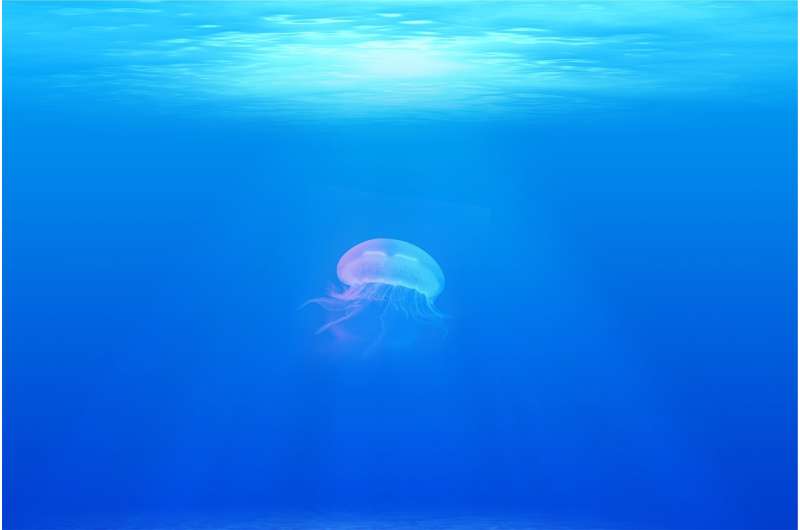Credit: CC0 Public Domain
New research into the effects of ocean acidification suggests that, while marine organisms may be able to cope with the effects of climate change in the short term, the biological cost of doing so may be too high to guarantee long-term survival.
In a new paper published today in the journal Proceedings of the Royal Society B, a team of scientists from the Universities of Glasgow, California Santa Cruz, Stanford and Stazione Zoologica Anton Dohrn describe how they studied crustose coralline algae clustered around undersea volcanic vents in Ischia, Italy.
The vents release carbon dioxide into the water, changing the acidity levels of nearby water. The world's oceans are becoming increasingly acidic as they absorb some of the atmospheric carbon dioxide which contributes to climate change. This process is gradually lowering the pH of the oceans and making them more acidic.
By carefully choosing areas of water with levels of acidity close to those experts have projected that the oceans will contain 100 years and 300 years from now, the researchers could take a look into what the future might hold for coralline algae.
Over the course of 14 months, they used spectroscopy techniques to study algae growing on tiles placed near the vents, paying close attention to their size, the amount of magnesium they contained, and the way their skeletons were arranged.
In the water analogous to the oceans of the 2100s, they found that the algae largely maintained similar size compared to algae found in the water of today. There was also little change in the composition of their skeletal structure, which is made up largely from calcium carbonate the algae draw from the minerals in the water. However, in the waters similar to those expected for 2300, the algae were much smaller with an altered and scattered skeleton.
Dr Nick Kamenos of the University of Glasgow's School of Geographical and Earth Sciences, who led the study, said: "The advantage of using volcanic vents as a 'time machine' to look at how ocean life might acclimate or adapt to future climate change is that they exist as part of the water's ecosystem. This means we're able to get a more complete picture of how things might change than we would if we conducted similar, but unavoidably isolated, experiments in the lab.
"We were a little surprised to see that the algae didn't change a great deal in the waters analogous to 2100, despite the increased acidity of the water. What we think is happening is that the algae are managing to change their survival strategies to cope with the changing environment.
"However, it would be a mistake to assume that the coping mechanisms we've seen are a long-term defence against ocean acidification. Projecting further into the future with the waters of the 2300s, we can see that the algae are much less likely to survive, and the algae which do manage to cope have a significantly changed skeleton, which could have a negative impact on their ability to survive."
"We're keen to extend our research into ocean acidification further, but it's clear from this and other studies that marine life faces a difficult time ahead if climate change continues to make our seas and oceans more acidic."
More information: N. A. Kamenos et al. Coralline algae in a naturally acidified ecosystem persist by maintaining control of skeletal mineralogy and size, Proceedings of the Royal Society B: Biological Sciences (2016). DOI: 10.1098/rspb.2016.1159
Journal information: Proceedings of the Royal Society B
Provided by University of Glasgow
























